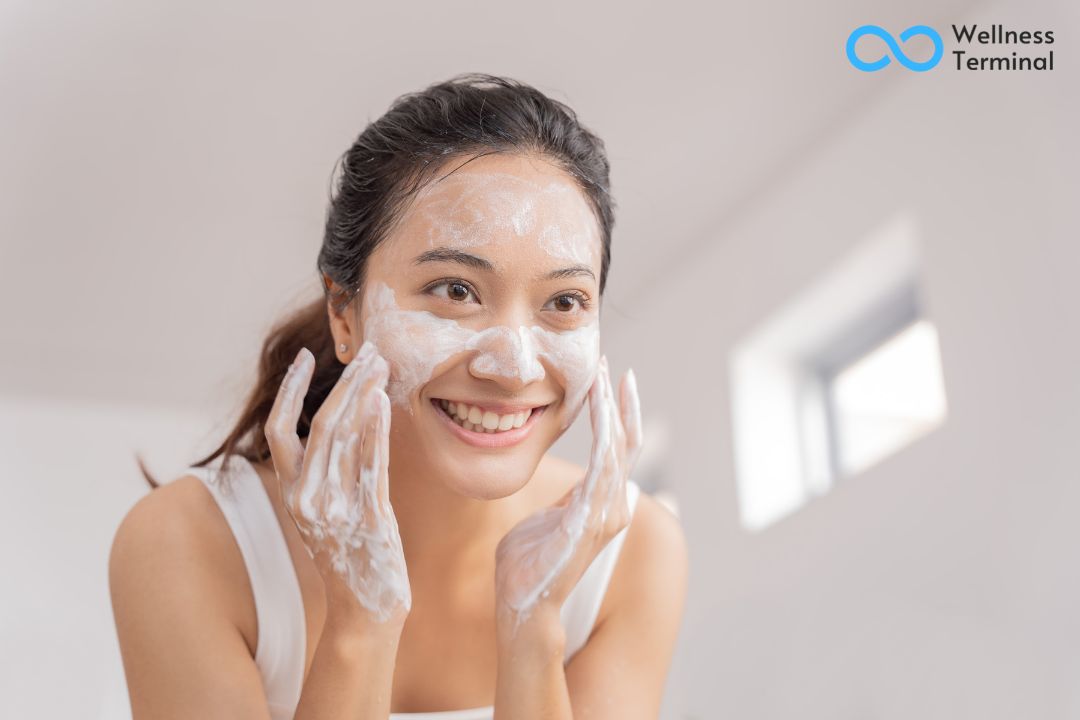Properly cleansing and exfoliating your skin is important to maintain its health and appearance. Cleansing removes dirt, oil, and other impurities from your skin, while exfoliating removes dead skin cells, which can clog pores and make your skin look dull. Together, cleansing and exfoliating can help reveal a brighter, more even complexion.
To properly cleanse your skin, use a gentle, non-foaming cleanser that is appropriate for your skin type (e.g. oily, dry, sensitive, or combination). Avoid using hot water, as this can strip your skin of its natural oils, and instead use lukewarm water. Gently massage the cleanser into your skin, using circular motions, and then rinse your face with water. Be sure to pat your skin dry with a soft towel, as rubbing it dry can cause irritation.
Exfoliating your skin can be done in two ways: mechanical exfoliation, which uses physical agents like scrubs or brushes to slough off dead skin cells, and chemical exfoliation, which uses acids or enzymes to dissolve the bonds between the dead skin cells.
For mechanical exfoliation, use a gentle scrub, such as one that contains small, smooth beads, or a brush with soft bristles. Avoid scrubs that contain large, rough particles, as these can be harsh and cause irritation. Gently massage the scrub or brush into your skin, using circular motions, for about 30 seconds to a minute, and then rinse your skin with water.
For chemical exfoliation, several different types of exfoliants can be used. Some popular options include alpha-hydroxy acids (AHAs) like glycolic or lactic acid and beta-hydroxy acids (BHAs) like salicylic acid. These exfoliants work by dissolving the bonds between the dead skin cells, allowing them to be easily washed away.
When using chemical exfoliants, it's important to use the right product for your skin type and to follow the instructions on the packaging carefully. If you have sensitive skin, it may be best to start with a lower concentration of acid and work your way up. Also, If you have sun-damaged skin, you should use a sunscreen with minimum SPF of 30 during the day when using chemical exfoliants as it can make your skin more sensitive to sun exposure.
To conclude, cleansing and exfoliating your skin regularly is an important part of maintaining the health and appearance of your skin. Cleansing removes dirt and impurities, while exfoliating removes dead skin cells, revealing a brighter, more even complexion. It's important to use the right products and techniques for your skin type and to be gentle when exfoliating to avoid irritation.

